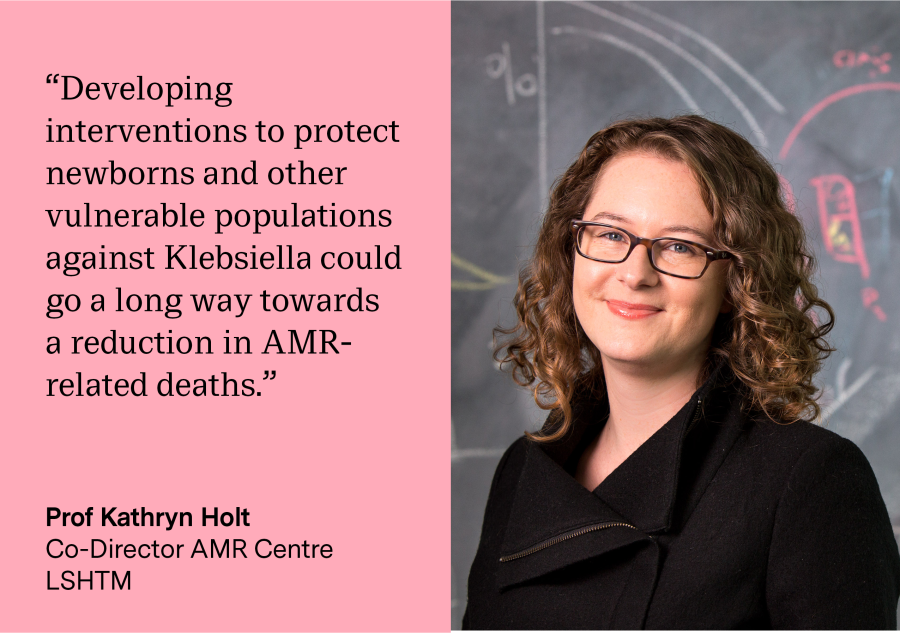
Researchers at the London School of Hygiene & Tropical Medicine (LSHTM), alongside collaborators, have been awarded £3.7m to support genomic surveillance and vaccine development for Klebsiella pneumoniae, a major human pathogen which causes a wide range of infections, such as pneumonia, urinary tract infections, and sepsis.
The team will aim to support genomic surveillance and vaccine development through an extension of the KlebNET platform and tools for analysing genomic data. This is vital to understand how different strains cause disease and track how the bacterium emerges, evolves, and develops antimicrobial resistance.
In particular, this research will focus on neonatal sepsis in Africa and Asia. One million newborns are estimated to die each year from severe bloodstream infections. The most common cause of these deaths are the bacteria, Klebsiella pneumoniae, and the problem is greatest in low and middle- income countries, where infections can be extremely difficult to treat due to high rates of antimicrobial resistance. The World Health Organization has classified Klebsiella pneumoniae as a critical priority pathogen for which new antibiotics are urgently needed, and it is a key target for the Global Antibiotic Research & Development Partnership (GARDP).
The KlebNET platform will aim to improve genomic surveillance to identify and monitor antimicrobial-resistant Klebsiella pneumoniae, and model and analyse their distribution globally. This will help us understand how the bacteria spreads and design effective containment strategies. This work will also include developing protocols, standards and certification for undertaking and reporting genomic surveillance.
Klebsiella pneumoniae genomics is also vital to understand the distribution of surface antigens in the population and support the design of effective vaccines against the pathogen. Current vaccine development work focuses on two strategies, either vaccinating pregnant women to stimulate the production of antibodies that can protect the newborn after birth or vaccinating adult populations most vulnerable to hospital-acquired infections.
Professor Kathryn Holt, Co-Director of the Antimicrobial Resistance (AMR) Centre at LSHTM and leading the KlebNET platform, said: “Klebsiella bacteria are a leading cause of AMR-related deaths, globally. Developing interventions to protect neonates and other vulnerable populations against Klebsiella are a high priority and could go a long way towards reaching the target of 10% reduction in AMR-related deaths by 2030, set by the UN General Assembly last month. We are particularly keen to support low- and middle-income countries to build on the pathogen sequencing capacity established during the COVID19 pandemic and turn it towards tackling Klebsiella and other AMR bacteria.”
The three-year study is carried out in collaboration with Institut Pasteur, Monash University, University of Oxford, University of Warwick, University of Stellenbosch and McMaster University.
If you enjoyed this article and would like to build a career in global health, we offer a range of MSc programmes covering health and data, infectious and tropical diseases, population health, and public health and policy.
Available on campus or online, including flexible study that works around your work and home life, be part of a global community at the UK's no.1 public health university.
